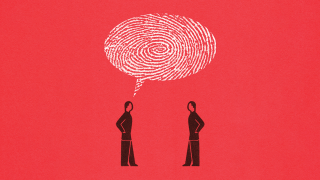“I’ve gotten comments either to me or behind my back that I sound ‘angry’ when I speak in English because of my accent or their preconceived notion about Arab men and culture,” was one of the statements made by a participant in one of our on-going research studies about linguistic racism and accent discrimination. Unfortunately, many other similar remarks have been made by other participants from a diverse spectrum of backgrounds. Linguistic racism is defined as the mistreatment, devaluation, and acts of discrimination towards people based on their language use or perceptions about their ethnicities. The results of linguistic racism are even more devastating while keeping the high number of immigrants in mind, with over 281 million people living in a country other than their countries of origin either voluntarily or involuntarily such as in the cases of wars and poverty.
Accents have been an inseparable part of our human language experiences as long as we have existed. Even as native speakers of a language we all have different accents. Let’s look at English as an example: American English, British English, Canadian English, Indian English, Irish English, and Australian English are only a few instances of the vast variety of English being spoken all over the globe as a native language. Within each of these countries, there are numerous distinct dialects and accents as well. American English alone has a wide range of accents: New England accent, Boston accent, New York accent, Southern accent, Midwestern accent, and Californian/Valley Girl accent just to name a few variations in the American English category.
In addition to national and international spectrums of accents within a country, each one of us individually also have a distinct personal accent or what is referred to as idiolects when it comes to our pronunciations, vocabulary choices, and grammar structures among other features. However, we tend to be significantly more tolerant or intolerant about people’s idiolects depending on their races and/or our perceptions about them in general. In contrast to the Arab participant whose negative treatment we mentioned previously, another Caucasian French upper-class participant had a very different experience: “I’m a celebrity chef and love to interact with people all the time. A lot of the people I chat with are very interested in my country and culture. I am very proud of my language and culture, so I’ve made a conscious effort to keep my French accent when I speak English even though I can imitate an American accent pretty well. It helps my business to sound and look more French.” Now how is it that the experiences of these two participants are so vastly different? We hypothesize that our conscious and subconscious linguistic racism play significant roles.
As a human species, categorizing has been a skill that has at times helped us to survive, such as in the case of grouping food items that are edible and those that are not. During parts of history, the categorization of people who belong to “our” group has protected our lands and resources from potential enemies or those with the intention to harm us. As the world has gotten more globalized with people having the ability to travel, work, and move to other lands more easily, we have evolved to gain more knowledge about the power and beauty of the advancements and accessibility of our modern world. However, some of our conscious and subconscious biases have stayed with us. In many ways, either consciously or subconsciously we judge other peoples’ “foreignness” or whether they belong to “our” group or not, continuously.
These types of biases towards other people result in alienation and mistreatment of some people with potentially irreversible negative consequences. As one of the participants described, “I’ve tried to adapt my accent and tone a lot throughout the years, and in a lot of ways I think I am doing myself a disservice by diminishing my true self and language/culture identity to blend in more with the American culture that is so foreign to me. But deep down I feel that we all need to meet each other halfway and it should not be a one-sided effort. I’m sure that if the US did not have as much economic and political power in the world, Americans would have to constantly censor and adapt themselves to the rest of the world and have to learn their languages and cultures when they immigrated or traveled. So, it all seems very unfair to be judged and negatively impacted by things that are so beyond our control and norms all the time.” To put oneself in someone's shoes is an English phrase that is commonly used, if we expect foreigners to learn the languages of their new countries perfectly and flawlessly in a short amount of time, maybe it is time that we all learn to put ourselves in each other’s shoes and increase our awareness about our own conscious and subconscious biases that may result in intended or unintended linguistic racism. Perhaps, instead of investing so much in accent reduction for non-native speakers, who are the majority of English speakers worldwide, we can educate native speakers about increasing their language, identity, and accent awareness. After all, if human history is any indication, socioeconomic and political powers are constantly in flux, and putting ourselves in each other’s shoes and meeting each other halfway can go a long way in the long run.






